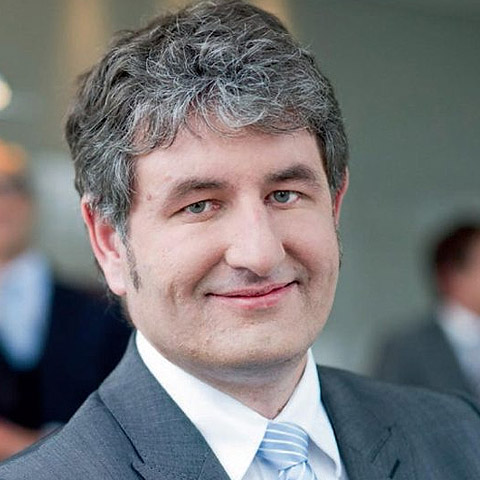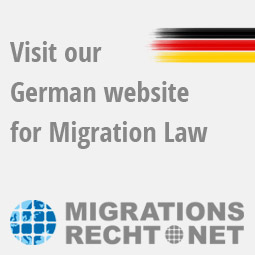The future of Germany as a business location depends to a large extent on how well it is possible to secure and expand the skilled labor base of companies and enterprises. Prosperity, the stability of social security systems and the associated social cohesion, as essential elements of the social market economy, are closely linked to the strength of the economy. The aim is to maintain and expand this strength in the future by providing good framework conditions and a forward-looking skilled workforce.
On 2 October 2018, the Federal Government adopted key points on the immigration of skilled workers from third countries. According to this, the Immigration of Skilled Workers Act, which creates the legal framework for a targeted control and strengthening of the immigration of skilled workers in line with demand, will be supplemented by accelerations in the recognition of foreign qualifications, increased promotion of the acquisition of the German language abroad, a strategy to be drawn up jointly with industry for the targeted recruitment of skilled workers and improved marketing, as well as more efficient and transparent administrative procedures.
The Immigration of Skilled Workers Act is an essential component of the cornerstones of the Federal Government and, within the existing framework of migration policy, creates the conditions for the skilled workers that the German economy needs to be able to come to Germany. It is clearly and transparently regulated who may come to work and for training purposes and who may not. To this end, the provisions on training and gainful employment of the Residence Act will be completely restructured and comprehensively revised. In addition, the Employment Ordinance will be adapted accordingly. The focus will be on qualified skilled workers in line with economic needs. These are defined centrally and for the first time uniformly as skilled workers with vocational training and skilled workers with academic training.
In the competition for the best foreign skilled workers, the necessary structures must also be created in Germany to be able to convince interested skilled workers of Germany. In order to make administrative procedures more efficient and service-oriented, the foreign authorities' responsibility for the entry of skilled workers is to be concentrated at central offices. An accelerated procedure for skilled workers will be created for faster procedures.
The draft law requires the federal states to establish at least one central foreigner’s authority for the entry of foreign skilled workers and the first issue of a residence permit to them and their accompanying family members. Together with an accelerated procedure for skilled workers, which can be initiated by the employer on the authority of a foreign skilled worker or other qualified employee in Germany, a procedure is provided which will lead to a faster filling of vacant positions.
If an employment contract and a recognized qualification are available, skilled workers can work in all occupations to which their qualification qualifies them. The term skilled worker covers both skilled workers with vocational training and skilled workers with academic training. For skilled workers with vocational training, qualified vocational training must have been acquired at home or abroad.
The possibilities of residence for skilled workers to find a job are summarized in a standard. For skilled workers with vocational training, the possibility of temporary entry for job search is created analogously to the regulation for skilled workers with academic training and tested for a limited period of five years. In addition, the residence permit for supplementary qualification measures and for the recognition of foreign vocational qualifications will be extended and made more attractive for existing partial qualifications and, with the involvement of the Federal Employment Agency, a limited possibility will be created to carry out the recognition only in Germany under certain conditions.
In order to make administrative procedures more efficient and service-oriented, the foreign authorities’ responsibility for the entry of skilled workers is to be concentrated at central offices. An accelerated procedure for skilled workers will be created for faster procedures.
The core of the draft law is the new regulation of employment. This clarifies that a foreigner who holds a residence title may in principle pursue gainful employment in Germany. The existing prohibition with reservation of permission is lifted. This adapts the rule-exception relationship on the question of when the pursuit of gainful employment is permitted to the changes that have taken place in recent years. This is because in the vast majority of cases where a residence permit is issued, gainful employment is now permitted by law.
The consequence of the reversal of the rule-exception relationship can be seen in the fact that an explicit provision to this effect is included in the elements of the Residence Act in which gainful employment is prohibited. Conversely, in those offences which so far expressly permit gainful employment, this reference is deleted (as a rule by the wording: "gainful employment is permitted"); it will be superfluous in future because of the permission subject to prohibition.
For undocumented migrants, the reversal of the rule-exception relationship does not change the law; they are subject to a prohibition subject to permission. This is because permission to pursue gainful employment is linked to the possession of a residence permit. If the foreigner does not possess a residence title but a temporary suspension of deportation (Duldung) or permission to remain pending the asylum decision (Aufenthaltsgestattung), the foreigner may be entitled to exercise the right of residence. If, according to the current legal situation, gainful employment can also be permitted by the Aliens Department without holding a residence permit, this continues to apply.
Increasing the immigration of skilled workers into training occupations is one of the main concerns of this Act; at the same time, foreign training qualifications frequently do not meet the requirements required for recognition. The new regulation makes it possible to stay in Germany for the purpose of recognizing professional qualifications acquired abroad within the framework of so-called placement agreements between the Federal Employment Agency and the labor administration of the country of origin. It takes account of the practical need to introduce foreign skilled workers to the local world of work and to complete the qualification at the same time in order to determine recognition. During the recognition procedure, the foreigners are already employed in the desired occupational field. By doing so, foreigners can already use and deepen their knowledge and skills in a professional environment and secure their own livelihood. The Federal Employment Agency accompanies the procedure in Germany so that it is guaranteed that recognition is actually obtained.
In addition, the Federal Employment Agency provides for facilitation in the form of so-called placement agreements also for other selected occupations, taking into account the appropriateness of the training structures in the country of origin, which should contribute to facilitating and accelerating recognition procedures, particularly in the craft trades sector.
Also important are the regulations for asylum seekers and foreigners who are obliged to leave the country regarding the possibility of receiving training. As has been the case to date, asylum seekers and foreigners who are obliged to leave the country are entitled to have their training tolerated if the conditions are met. However, the foreigner authorities are given the opportunity to refuse to tolerate training in exceptional cases. Such exceptional cases are, in particular, cases in which an abusive application for training toleration has been made, for example in the case of fictitious training relationships or if it appears from the outset on the basis of concrete indications that the training can be successfully completed that is ruled out. The foreigner authorities have no discretion with regard to the employment permit required under the new legal situation if the prerequisites for tolerating training are met.


